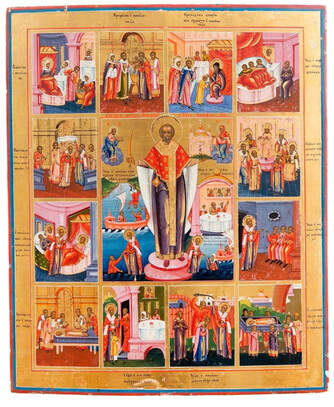|
Do you watch ‘Only Connect”? Can you work out what the connection is between these four clues and why? The answer is Superheroes. All of these images portray the reason why specific comic book characters became their superhero personae. Peter Parker (Spiderman) was bitten by a radioactive spider, Clark Kent (Superman) was from the planet Krypton, Steve Rogers (Captain America) was enhanced to the peak of human ability by an experimental serum and Bruce Wayne (Batman) swore vengeance against criminals after witnessing the murder of his parents). If we look at the concept of a ‘Superhero’ we are likely to conclude that this is any kind of fantasy/science fiction crime-fighting character, often with supernatural powers or equipment and most often found in popular children's and fantasy literature. However, if we look at the concept of a ‘Hero’ we are likely to deduce that these are real or mythical person of great bravery who carrys out extraordinary deeds. Our Christian heritage is filled with Superhero-hero’s. ‘Superheroes’ by virtue of possessing supernatural powers and ‘Heroes’ because they are real and not fantasy characters. All who exhibit extraordinary courage. The root of the word ‘courage’ is ‘cor’—the Latin word for heart. today, courage is synonymous with being heroic. However, in one of its earliest forms, the word courage had a very different definition to todays. Courage originally meant “To speak one’s mind by telling all one’s heart.” I think it is fair to say that we have pretty much lost touch with the idea that speaking honestly and openly about who we are, about what we’re feeling, and about our experiences (good and bad) is the definition of courage. We often see ‘Heroics’ as putting one’s life on the line, but I want to suggest that being courageous and heroic can also be about putting our vulnerability on the line. In today’s world, that can be pretty extraordinary. In our gospel reading, Luke 13: 10-17, we witness heroism; we witness that of the ‘woman who had a spirit of infirmity for eighteen years’ (v11). Vulnerable, bent over and could ‘in no way raise herself up (v11} yet this woman still went to the synagogue on the sabbath, her bodily infirmities did not prevent her from participating in public worship – Heroic! We witness too the Heroism of our Lord. Having spoken out previously about the hypocrisy of the Jewish authorities Jesus is vulnerable and yet he continues to attend and teach in the synagogue on the sabbath. Again, he challenges the indignant Jewish authorities and calls the ‘ruler’ of the synagogue a hypocrite (v15). Our Lord sees that it is not only the woman who has the infirmity. Those who are challenging Jesus are under a spirit of infirmity; they have distorted hearts; they are unable to raise themselves up to God and heaven. We should note that our Lord, in his compassion, offers healing to the woman without it being sought or requested (v12). Although she could in no way raise herself up, Christ could lift her up and enable her to lift up herself. She that had been bent was immediately made straight (v13). So often we fall and judge others only according to outward appearance. Not so our Lord; he knew fully the enmity that was felt both to him and his gospel! – And His adversaries knew they were wrong, ‘And when He said these things, all His adversaries were put to shame’ (v17). The shame of his adversaries was the joy of his followers ‘and all the multitude rejoiced for all the glorious things that were done by Him’. They rejoiced in his Heroism.  Today we celebrate the feast of St Nicholas. As Bishop of Myra in Lycia, Nicholas was imprisoned for his faith under the Roman emperor Diocletian but freed by his successor Constantine. It is reported that on his way to the council of Nicea he performed a miracle, bring back to life three murdered boys. Further reported miracles involve him appearing in a vision or a dream to free three condemned man or to save three storm-bound sailors. And of course, his most famous act was giving three sisters dowries, as they came of age, to save them from prostitution or slavery. St Nicholas was and is still heralded by many as a healer of the sick, the liberator of captives, the treasure of the poor, the consoler of the afflicted and a guide to travellers. The feast of St Nicholas is surrounded with a special solemnity and his life with Heroism, He is truly one of the truer Heroes of the Orthodox faith!
1 Comment
Konstantina Papadakos
3/12/2022 17:32:01
Hello, I wanted to know who wrote this interesting sermon?
Reply
Leave a Reply. |
Parish Blog
This mainly contains homilies and messages from our priests, although there is some scope to share thoughts and interesting articles which we may want to share with others Archives
October 2022
Categories |

 RSS Feed
RSS Feed